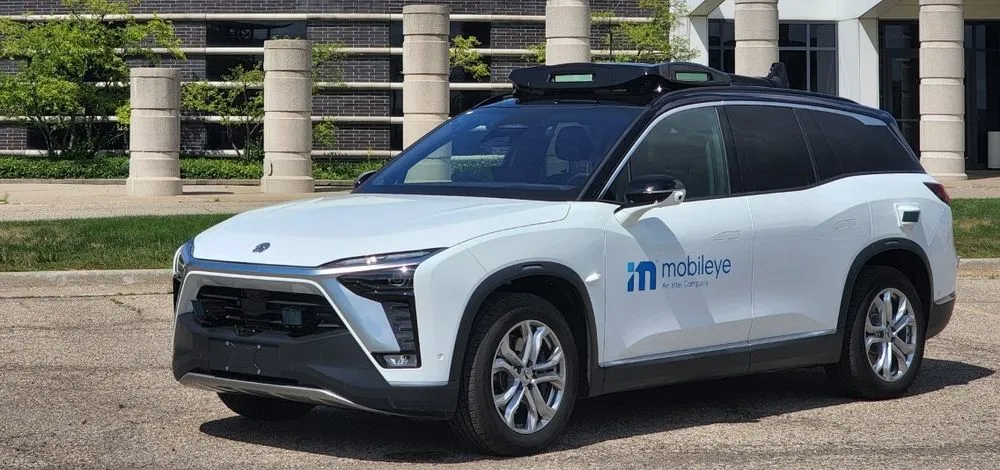
Mobileye says it has begun testing its fully-autonomous vehicle (AV) in Detroit – the first time its Level 4 self-driving solution has been on US roads.
The Mobileye Drive system is integrated into the all-electric NIO ES8 sport-utility vehicle, using both Lidar and radar.
However, tests will be carried out with a human safety driver behind the wheel and there is no plan to give rides to members of the public.
“Our Detroit testing of Mobileye Drive is helping us ensure that the system can bring forward the global commercialisation of autonomous driving technology and deliver on its promise to vastly improve road safety,” said Johann Jungwirth, senior vice president of AVs at Mobileye.
“We take the challenge of proving the capabilities of our technology seriously. By testing in the birthplace of the American automotive industry, we expect to make major progress toward our goals.”
Fleets of this vehicle will also form the basis of robotaxi services which are being rolled out in the coming months in Germany and Israel.
The company says the Detroit test will "expose Mobileye Drive to the everyday challenges of American driving, and some unique local roadway characteristics (like 'Michigan lefts') to further verify its capabilities".
The system contains True Redundancy sensing, Road Experience Management (REM) crowdsourced mapping, and Responsibility-Sensitive Safety (RSS) driving policy, Mobileye says.
The company says its technology "should be adaptable not just to different locations, but to different climates and driving cultures as well".
The REM-powered Mobileye Roadbook helps gather data on the general behaviour of traffic in different places, and RSS adapts the Mobileye Drive system to local behaviour in those places, Mobileye says.
Mobileye says it has 'worked closely' with the US National Highway Traffic Safety Administration to ensure safe operation.








